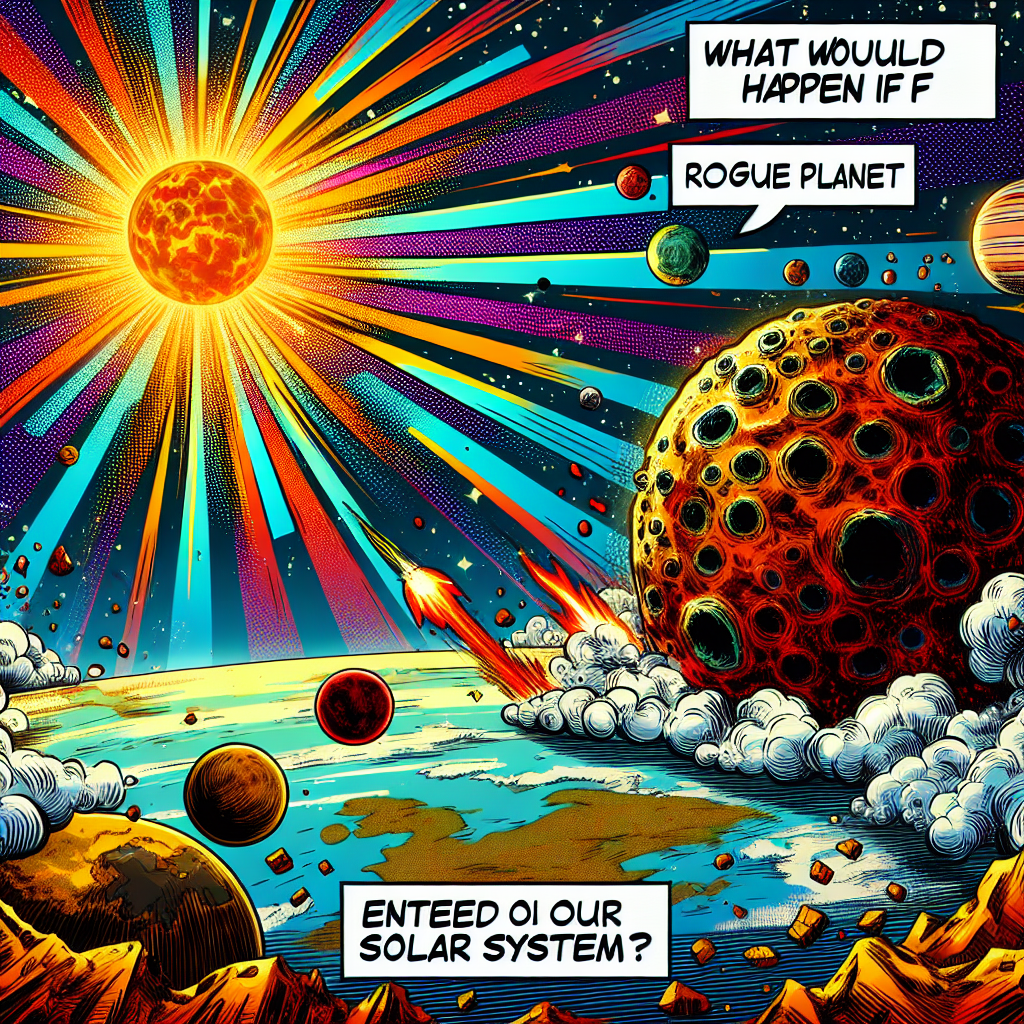When a rogue planet enters our solar system, it's like a stranger showing up at a family reunion – it changes the entire dynamic. In this case, the stranger is a massive, wandering world that has broken free from its own star system, and now it's crashing the party. This interloper would be drawn to the Sun's gravity, just like the planets we know and love.
The rogue planet's gravity would start to stir up the orbits of our familiar planets, like a kid poking a beehive with a stick. Mercury, Venus, Earth, and the rest would have their paths altered, causing chaos in the celestial dance. The effects would be subtle at first, but as the rogue planet drew closer, the disturbances would grow stronger.
Imagine the solar system as a delicate mobile, with each planet hanging in its designated spot. The rogue planet would be like a giant, unseen hand, pushing and pulling on the mobile's threads, making the planets sway and wobble. The closer the rogue planet gets, the more it would disrupt the mobile's balance, potentially sending planets careening into new, unpredictable orbits.
Now, let's talk about the Rogue Planet's mass. If it's small, like Mercury, the effects would be minimal. But if it's massive, similar to Jupiter, the disturbance would be catastrophic. The gas giants like Jupiter and Saturn would be affected the most, as they're already massive and have a strong gravitational grip on the solar system. The rogue planet would challenge their dominance, like a new bully in the playground, causing the gas giants to shift their orbits and potentially even swap places.
As the rogue planet makes its way deeper into the solar system, its gravity would start to strip away the outer planets' atmospheres, like a cosmic tornado. The gas giants' moons, like Io and Europa, would be affected the most, as their orbits would become unstable, and they might even get ejected from their parent planet's gravitational grasp.
Here are some possible scenarios:
- Scenario 1: The Rogue Planet gets captured: The Sun's gravity could capture the rogue planet, adding it to our solar system's planet roster. This new planet would likely take up residence in the outer reaches of the solar system, potentially becoming a new Kuiper Belt Object.
- Scenario 2: The Rogue Planet causes chaos and exits: The rogue planet's gravity could scatter the solar system's planets, causing collisions, ejections, or even planetary exchanges (where one planet takes another's place). Then, the rogue planet would continue its journey, leaving behind a reshuffled solar system.
- Scenario 3: The Rogue Planet gets destroyed or ejected: If the rogue planet gets too close to the Sun or the gas giants, it could be torn apart by their gravitational forces or ejected from the solar system altogether.
The odds of a rogue planet entering our solar system are extremely low, but not impossible. In fact, there are theories that our own solar system might have formed from a similar scenario, where a rogue planet or star system collided with our Sun, leading to the formation of our planets.
When we explore the possibility of a rogue planet entering our solar system, we must consider the impact on the planetary orbits, the Sun's gravity, and the solar system's overall architecture. It's a complex dance, where one misstep could have catastrophic consequences. By studying these "what if" scenarios, we gain a deeper understanding of the intricate balance that governs our cosmic neighborhood.
The rogue planet thought experiment also raises questions about the long-term stability of our solar system. Are we living in a temporary celestial harmony, where one perturbation could send everything awry? Or is our solar system more resilient than we think, able to withstand the gravitational whims of a rogue planet?
The search for rogue planets and the study of their potential impacts on our solar system serves as a reminder of the awe-inspiring complexity of celestial mechanics and the vast mysteries waiting to be unraveled in the universe.

Popular Space Questions
Find answers to the trending space questions being asked by our community on social media.
- How many galaxies are there in the universe?
- How far is Pluto from Earth?
- How many planets are in the Milky Way?
- What would happen if a rogue planet entered our solar system?
- How many planets are in our solar system?
- How big is the Earth?
- What are the planets in order?
- How big is the universe?
- What if we found a way to manipulate gravity?
- What would happen if a pulsar's beam hit Earth?